I
On 4 December 2021, a debate rages on a WhatsApp poetry platform, APNET, short for All Poet’s Network. The subject of the debate is the work of the young poet Sabouke. He has posted a poem titled “God’s Book.” Shortly after, Khalid Imam, the platform’s administrator and founder, reaches Sabouke in a private chat, advising him to stop posting his “Fairaideology based poems” on the platform because some members are offended by his poetry. Sabouke asks to know what “Faira ideology” means and if he is being censored. Khalid Imam replies that he doesn’t have to explain anything to Sabouke and if the latter feels he is being censored, so be it. Sabouke appears later on the platform to say he has been asked not to post his poems again. Consequently, he leaves the platform.
Khalid Imam insists that Ba Sabouke’s poem, “God’s Book,” will cause a religious riot. The riot will erupt on a WhatsApp platform! Because the poem bears the ideology of Faira, a religious indoctrination Imam and a number of others do not like. His opinion alarms me. He would not be convinced that the poem is a poem, a piece of craft to be understood as such. That some of us do not see any Faira ideology in it. Some of us do not even know what Faira is. What we do know is that Sabouke’s poems are, in most cases, erotic
The debate is whether or not a platform that purports to promote the craft of poetry should censor a poet by asking him not to post poems that have a certain ideological leaning. Some of us think that a poem is an artwork, and as such our concern should be whether it is artistically accomplished or not, irrespective of its ideological positioning. Others argue that a poem’s ideological stance could offend the sensibility of the platform’s members, and as such the poem should be pulled down and the poet cautioned. Some feel that the best way to encourage young poets like Sabouke is not to bully them with censorship, but to try to understand and tolerate what they write. Others think Sabouke should be expelled to serve as a deterrent to other potentially immoral poets.
There are issues to point out from that incident, especially in a country that loves and writes poetry (poets appear to still outnumber writers of other genres), especially in a region—the north—where poets and writers are relatively scarce and need to be encouraged to write. Yes, the north of Nigeria is relatively barren in creative writing, given its size and population. This becomes an opportunity some seize to form schools, mentorship avenues, and coteries in order to promote writing among the young. Consequently, Khalid, the Imam of APNET—other members in the platform reveal that he has the habit of private-chatting younger writers to advise them against saying or doing what he doesn’t like—presents himself as a messiah of some sort for young writers. Interestingly, his fatwa on Sabouke betrays his heavy-handed tyranny towards young writers, in that Sabouke, to the best of my recollection, is not the first to post erotic poems on APNET. There had been erotic poems earlier posted and praised on the platform, which Imam could not censor because, I guess, the poets involved were not so young or wouldn’t take any shit from him. Some of the erotic poems posted on APNET resulted in an excellent collection titled Dearlogue, co-authored by Abubakar Othman and Habeebatu X. In other words, Khalid Imam appears to target certain young writers to bully and censor.

Sabouke 
Khalid Imam
II
Let’s talk about the craft of poetry. We should start from Sabouke’s “God’s Book,” the poem that, according to the Imam, offends some APNET members:
God’s Book
The human heart is the manuscript Of a surrealist wizard – master Of the Banana Republic of rascal poets. The manuscript – a compendia Of verses stitched together with no regard For the sanctity of fonts and formats. The heart is a sacred Samarkand night club Where booze is the only liquid That refreshes the gullets. The heart needs music – (note: here, Music is a night clubber who must smoke A truckload of marijuana) – to stay alive. Today, the heart is imploding, Held hostage and filled with receding wind Of silence. Today, the heart is the phallus Of a mummified Buddhist monk That has lost its veins to time. Who would Show us the path to the city That is yet to murder all her DJs?
This is a typical Sabouke poem. Sensuous or lurid metaphors stare at you, tweaking your sense of morality, assaulting your hypocritical prudery, tasking his reader to go beneath the surface.
I have followed Sabouke’s poetry for a while, and I can say he writes two kinds of poetry. The first kind deals with the personal experience of spiritual self-discovery, of soul-searching, of inward inquest, where the persona yearns for a sort of nirvana in personal freedom. The persona is aggressive in pursuing freedom, given the starkness and the acerbity of Sabouke’s provocative images. The second type is political, usually about the condition of Nigeria, where the persona takes a magisterial view of social realities with satirical punches. Here, the images are also provocative, underscored by ingenious use of sensual, tactile, and kinetic words that are likely to disorient a conservative reader.
Heavily influenced by Sufism (the allusions are copious in his poetry) and keen on stretching the limits of surrealism, Sabouke is a poet intensely conscious of his craft. His consistency of style—his use of (im)morally provocative metaphors, of what you might see as his aesthetics of erotica—is a demonstration that Sabouke is working hard to discover his voice. Consistently, Sabouke’s poetry tends towards the phantasmagorical. He seems to pour all his day-dreams (in the sense Sigmund Freud uses the term) into his art. Freud explains that “the writer softens the character of his egoistic day-dreams by altering and disguising it, and he bribes us by the purely formal – that is, aesthetic – yield of pleasure which he offers us in the presentation of his phantasies” (46). As such, the reader, bribed with the aesthetic pleasure of the writing, ought to first enjoy the form of the piece and confine herself to the pleasure of the form to avoid imposing her own thoughts on the piece of work.
“God’s Book” demands an intelligent reader, not what Robert Graves and Laura Riding call a “plain reader.” In their essay “The Modernist Poetry and the Plain Reader’s Rights,” Graves and Riding point out that poetry, all poetry, “obviously demands a more vigorous imaginative effort than the plain reader has been willing to apply” (161). This is getting worse by the day, accentuated by what I see as social media philistinism. (Social media, they say, can help the growth of literary art; but all around me what I see is social media being used to undermine the essence of art, to promote pseudo-art instead of real art.)
To apply imaginative effort to the reading of “God’s Book,” the reader, who might be a Muslim or Christian, should not see the phrase “God’s Book” as the Qur’an or the Bible. That would be reductive, plain, and unimaginative. The expression is certainly a metaphor, one that could provoke many meanings. One of the keys to unravelling the metaphoricity of “God’s Book” is the first line of the poem: “The human heart is the manuscript.”That is to say, “God’s Book” may certainly not be a reference to any plain book, a white or coloured leaves of paper on which humans write, but it is a “heart”—the human heart, an image that could possibly not be referring to the physical materiality of the heart (a muscle of flesh within the cardiac region) but the abstract heart of something, perhaps of human existence.
As in all poems, poets use physical, material things to metaphorically refer to a philosophical condition. This tendency of poets to use the physical to point to the metaphysical is, according to Martin Heidegger, one of the essences of the poetic craft and of all work of art. He refers to the physical as the sensuous, and to the metaphysical as the suprasensuous, where, in his words, “the essence of art stands or falls in accordance with the essence and truth of the metaphysics” (249). The sensuous objects do not stand for themselves as sensuous objects; they stand for the suprasensuous, the metaphysical realm. Notice, in “God’s Book,” expressions like “surrealist wizard” (maybe, the supernatural power of the muse), who is “master/ Of the Banana Republic of rascal poets.” In his evolving idiom, Sabouke has referred to poets as rascals (see his other poems), which I think is his way of foregrounding the boundless spirits of the poet—one whose soul, imagination, craft cannot be contained. In my view, this is central to the message, or ideological positioning, if there is any such thing, of “God’s Book.”I see in this poem, as in many of Sabouke’s poems, that Nietzschean free will to live and operate above conventions.
Note the sad tone in the latter part of the poem, which contrasts with the rascally happy tone at the beginning. “Today, the heart is the phallus / Of mummified Buddhist monk / That has lost its veins to time.” What is the use of a phallus (the penis) without its veins? The poem ends: “Who would /Show us the path to the city / That is yet to murder all her DJs?” In other words, all cities have murdered their DJs; and that is why the “heart” is no longer potent, now rendered as a vein-less phallus. What is the fate of rascal poets in such a city? It seems to me that this poem is worried about the human heart, regarded as “God’s Book,” now congealed, rendered useless, in a city that kills her DJs, which is presumably a reference to the rascal poets.
It is interesting that this poem which mourns the impending erasure of DJs, rascal poets, the HEART (which could also refer to the agency of radical nonconformity),killed by the establishment, which is what “city” metaphorises, is what Imam, of APNET, uses to kill—metaphorically speaking—a DJ, the rascal poet, Sabouke. Khalid Imam and his army of plain readers on the APNET platform do not only kill Sabouke’s art by censoring him out of the platform, but their action signals killing the craft of poetry.
If “God’s Book” contains any ideology, it is certainly the ideology of freedom for the rascal and radical poet. Which is what, methinks, is the underlying ideology of all poetry, of all arts. In a way, it is the desire to confront social strictures, political positions, cultural containment, that gets the secular poet started. The poet first extricates himself from the realm of normativity and presents himself as what Tanure Ojaide calls an oracle, with boundless free will, with radical craft, to, as they say, speak truth to power on behalf of humanity. Poetry, in other words, is an inherently transgressive art; the poet is a bold transgressor for himself and for humanity.
III
I do not write this piece in defence of Sabouke and his art, but in defence of poetry. “In Defence of Poetry,” the first part of my title, echoes previous attempts to save poetry from institutional powers and climates of hostility. Poetry, indeed the creative art, is endangered in northern Nigeria if Khalid Imam, sitting in Kano State, citing what he calls Faira ideology, would bully a poet to stop posting his poems in a WhatsApp platform.
The reason for the endangerment of poetry is not whether or not the poet has infused what is referred to as the Faira ideology in the poem “God’s Book.”The reason is that Khalid Imam and his likes have constituted themselves into an institution of censorship, encouraged by the climate of censorship that almost always threatens to envelope the man of the arts in northern Nigeria. Kano is a powerful capital of censorship in Nigeria where official and unofficial restrictions are placed on the performance, production, and output of artistic works. The Kano State Film and Censorship Board has banned or threatens to ban Hausa movies for being too immoral. An immorality largely viewed from the Islamic perspective.
Religious and cultural authorities, clerics, and self-professed moralists in northern Nigeria have had keen eyes for, and hostility towards, the portrayal of what they regard as immoral acts in arts. Consequently, writers, musicians, and other creative artists working in northern Nigeria subject themselves to self-censorship—they have to severely edit their works in order not to provoke the religious and moral establishment in the society they work. In this context, censorship is a reality within which the writer is forced to work, is contained, is inadvertently self-critical.
Nevertheless, many writers continue to rebel against this grain. They go out of bounds and represent the unrepresentable, they portray what hurts the religious and moral capital, and they interrogate the sacred heart of normative tyranny. The contemporary novelists of northern Nigeria have fared well in this regard: read Audi T. Giwa’sYarinya, read Abubakar Adam Ibrahim’s Season of Crimson Blossom, read, quite recently, Safiya Yero’sNaja. Indeed, most northern Nigerian writers, irrespective of religions, have confronted the myths of crude, medieval cultures imposed on the society as religious beliefs by the northern cultural establishment. In reality, these crude ways have nothing to do with religions. Sex and sexuality, for instance, have been shrouded in inhuman traditions that present themselves as religious obligations in northern Nigeria.
Sabouke emerged on the literary scene as a poet-transgressor, and while some of us applaud his boldness, and wish for more of his likes, it is appalling that he should be censored by those who claim to be poets or claim to promote poetry. My investigations with the parties involved and other members of APNET show that Khalid Imam and his army of plain readers belong to the Salafi/Wahabi Islamic sect while Sabouke belongs to the Tijaniyya sect. Not only that, Khalid Imam and company think that Sabouke promotes immorality, the reason he adopts an idiom anchored on sensual images. In other words, while they agree that Sabouke is a fine poet, what they do not want is what they see as his use of vulgar images. The immorality of his poetry, Khalid Imam insists, offends some readers’ sensibility, and would cause a religious riot. This is as reductive as censorship can go.
Blinded by their hypocritical prudery, Sabouke’s accusers fail to see that obscenity, vulgarity, bawdiness, erotica—call it whatever you will—are a part of art, of artistic creativity, all over the world. In traditional African societies, there are proverbs built on obscene and vulgar images. Read Idris Amali’s “Linguistic and Semantic Aspects of Obscene Idoma Proverbs.” Talking about his Tender Moment, a poetry volume that gestures towards the corporeal aspects of love, Niyi Osundare hints at the ignorance of those who think Africans do not talk explicitly about love and sex. “I wanted to challenge,” he says, “the pretentious prudery and overwrought hygiene in much of contemporary poetry with poems that challenge the audience to feel and think, and explode the myth that Africans only know how to make love; they do not know how to sing about it” (Niyi Osundare: a Literary Biography 236).
Khalid Imam and his friends choose not to see Sabouke’s poems as poems, but as ideologies because they do not like the moral texture of his poetry. I. A. Richards once said that “[i]t is never what a poem says which matters, but what it is” (157). To focus on what the poem says is to impose one’s views on the poem. “Misunderstanding and under-estimation of poetry,” he further said, “is mainly due to over-estimation of the thought in it” (157). As plain readers, interested in only the thought in the poem, they input their own thoughts in the thought-content of the poem; that is, they bring their preconceived dislike of Sabouke’s sect into his poetry. They reduce each poem to a Faira ideology. (Ideology, by the way, is such a terribly tricky term to use.) A plain, unintelligent, unimaginative reader of poetry who carelessly throws the word “ideology” around, as Khalid Imam does, would end up revealing his own ignorance.
The contemporary usage of the term “ideology” emerged from Marxism. Over the decades, Marxist theorists such as Louis Althusser, Raymond Williams, Antonio Gramsci, Etienne Balibar, Fredric Jameson, Terry Eagleton, and Slavoj Zizek have hotly debated the term. For some, ideology is an illusion (Jameson says it is, in the long run, Utopian (289)); for others, it is a reality which manifestations are fluid, not easily graspable. Extremely slippery and shifty, ideology is a term that has, in the words of Julian Wolfreys, “[a] strategic ability to serve in the definition of other concepts in equivocal, if not ambivalent and even antagonistic or dialectal ways” (102). So, where you expect to find ideology, it may not be there; where you don’t expect to find it, it may be there. Ideology may be seen when it is represented in a concrete object, such as a cloth. I may wear a particular cloth to demonstrate an ideology. This may be easy to identify. But how could you be certain of an ideology in a poem, an extremely figurative use of language? Language itself, whether figurative or not, does not deliver a stable meaning into our hands. With the concept of aporia, for instance, Jacques Derrida draws our attention to the limit of semantic horizon and the undecidability inherent in meaning. It would therefore be mischievous for one to be certain of an ideology in a poem.
The questions to ask here is that do they really see, are they capable of seeing, an ideology in the poem? Do they not impose their own ideology on the poem? When Khalid Imam and his likes say they see Faira ideology in Sabouke’s poem, is it not what they think a Faira ideology is, their own definition and intolerance of it, prevailing in their consciousness, they impose on the poem? Who is really ideological here—the poet who puts out figurative expressions (whose meanings are even elusive to him) or the censors of poetry who will cancel poems because of their religious beliefs?
Poetry must be allowed to be, allowed to thrive, in spite of anyone’s ideological dispositions. I would like to think that all ideologies in poetry are illusory. I believe in Graves and Riding’s assertion that “if the author once had a precise meaning it was lost in the writing process of the poem” (162). As such, we ought to approach a poem with a mind free of ideological restrictions, and focus on enjoying the pleasure of form, the aesthetic embellishment that, according to Freud, the poet uses to bribe us in order to appreciate her craft. Poets themselves and all lovers of poetry must rise against the APNET kind of censorship anywhere in northern Nigeria.
So, let the poem be!
Works Cited Derrida, Jacques. Aporias, translated by Thomas Dutoit, Stanford University Press, 1993. Egya, Sule E. Niyi Osundare: a Literary Biography. Makurdi: SevHage, 2017. Freud, Sigmund. “Creative Writers and Day-dreaming.” Poetry in Theory: an Anthology 1900- 2000, edited by Jon Cook, Blackwell Publishing, 2005, pp. 41-46. Graves, Robert & Laura Riding. “Modernist Poetry and the Plain Reader’s Rights.” Poetry in Theory: an Anthology 1900-2000, edited by Jon Cook, Blackwell Publishing, 2005, pp. 160-168. Heidegger, Martin. “The Ister Hymn.” Poetry in Theory: an Anthology 1900-2000, edited by Jon Cook, Blackwell Publishing, 2005, pp. 248-255. Jameson, Fredric. Political Unconscious: Narrative as a Socially Symbolic Act. Cornell University Press, 1981. Ojaide, Tanure. Poetic Imagination in Black Africa: Essays on African Poetry. Carolina Academic Press, 1996. Richards, I. A. “The Poetic Experience.” Poetry in Theory: an Anthology 1900-2000, edited by Jon Cook, Blackwell Publishing, 2005, pp. 152-159. Wolfreys, Julian. Critical Keywords in Literary and Cultural Theory. Palgrave Macmillan, 2004.
- In Defence of Poetry: Sabouke Versus Dangerous Ideologists || E. E. Sule - January 24, 2022






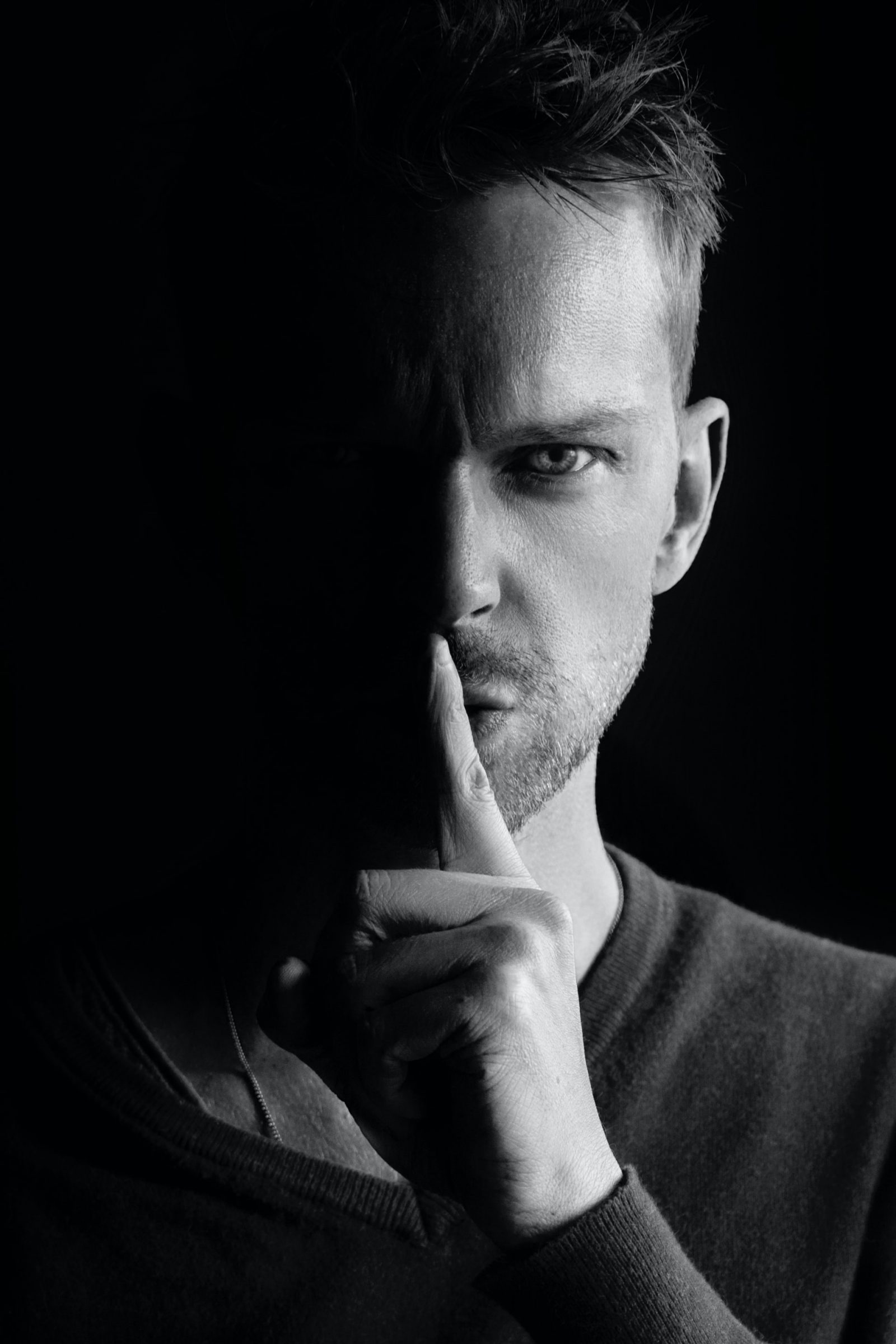
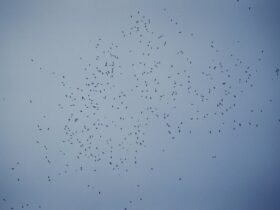
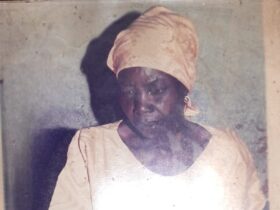

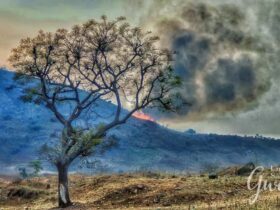
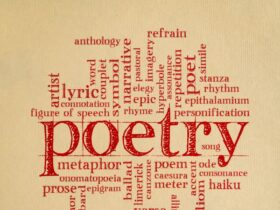

Leave a Reply